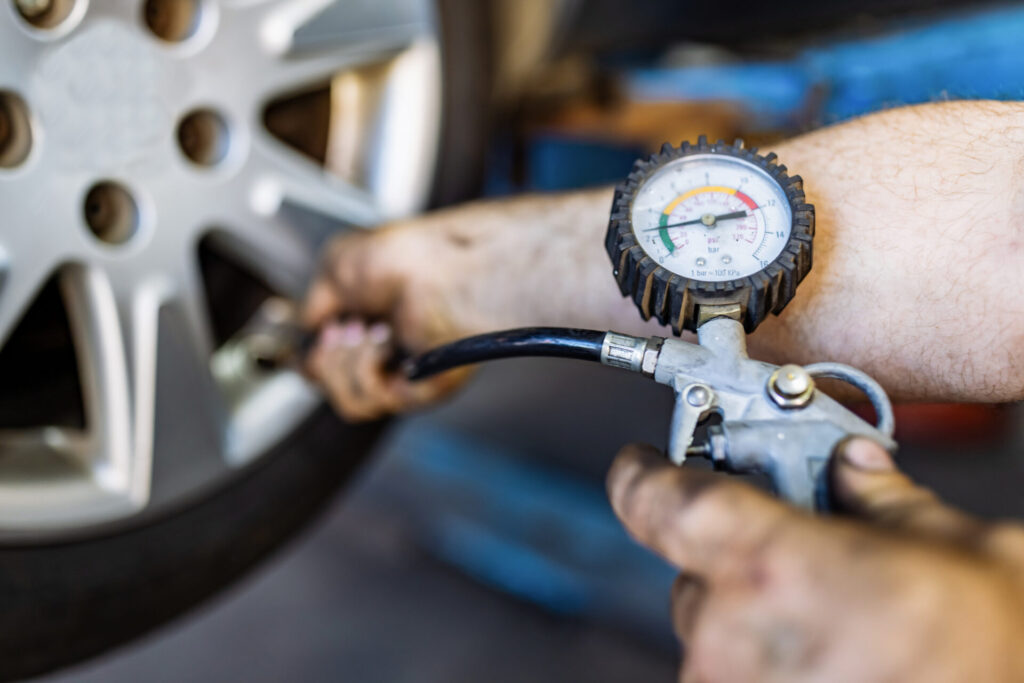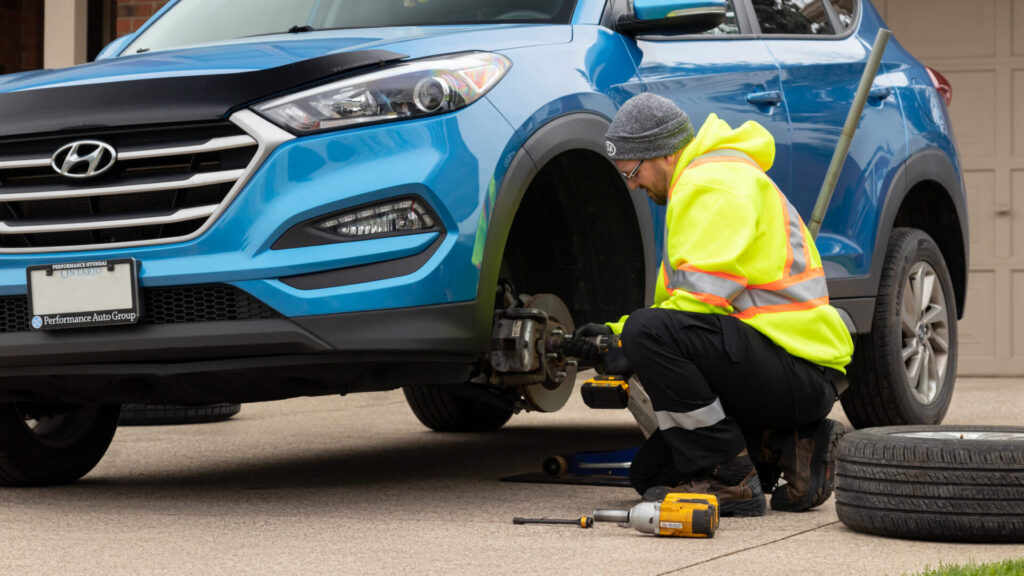Are winter tires necessary and when should you change them? CAA auto experts answer your top tire questions.
How often should I change my tires?
It depends on tire quality and the usual mileage. Generally, you should change them every three to four years. Check the tire tread when the weather starts to get cold. If the tread depth is less than 4.8 millimetres (6/32 inches), buy a new set of tires. Don’t take any chances: Not only will you compromise your driving performance, but you’ll also face a $200 to $300 fine if the tread depth is less than 1.6 millimetres (2/32 inches).
How should I store my tires?
The heat (or extreme winter cold) and the humidity of a garden shed are not ideal for storing tires. Choose a cool and dry place, like a basement or a lightly heated garage. Store rimless tires standing up; do not stack or hang them up. If the tires are mounted on rims, hang them up on a wall rack or stack them.
What tire size is recommended for my vehicle?
You can save a few dollars on winter tires by opting for a different size than the original. Ask a retailer or consult your owner’s manual to find out the different sizes that fit your vehicle. At the risk of compromising your safety, don’t get tires smaller in diameter than those recommended. And beware of sports models, as their brake discs may limit this change.
What’s the recommended tire pressure for my vehicle?

Don’t go for the maximum pressure indicated on the sidewall or you’ll drive with over-inflated tires. Instead, stick to the pressure recommended by the carmaker. This information, like the tire load index, can be found in the owner’s manual or the sticker inside one of the car’s doors. CAA recommends checking the tire pressure monthly and even more often in winter since each time the temperature drops by 6°C, your tires lose 1 pound per square foot of pressure. Driving with underinflated tires leads to sloppy driving, higher fuel consumption and premature tire wear.
What is tire load index?
This important tire specification is all too often overlooked. Tire load index refers to a tire’s maximum load-carrying capacity (ranging from 75 to 120). These numbers are always preceded by a letter indicating the maximum speed that the tire can maintain over time. Overloaded tires risk weakening, which can compromise road safety and accelerate tire wear, especially in electric vehicles that are already burdened by battery weight. The load index is shown in the owner’s manual and the sticker inside the driver’s door.
Is it better to inflate tires with nitrogen than with air?
Because of its composition, nitrogen helps stabilize the air pressure in tires, but the nitrogen must be pure; for example, it must have at least 95 per cent concentration and it’s important to have it professionally done. The cost is about $30 for all four tires. However, a tire that is properly maintained with proper air pressure will deliver a similar result.
When’s the best time to change tires?
The best time is the moment when the average temperature drops below 7°C. Note that the rubber compounds in summer tires stiffen and lose their adherence, whereas winter tires (with softer rubber) are more efficient on cold and slippery surfaces.
Are winter tires really necessary?
CAA strongly recommends real winter tires and just as strongly discourages using all-weather tires in winter. These all-in-one solutions don’t offer adequate traction on icy surfaces or in extreme cold climates, whereas, in hot weather, their braking performance is barely acceptable – and they wear out fast. On the other hand, they may be adequate in certain specific situations (for snowbirds or drivers who only drive in moderate winter zones, for example).
Get a hassle-free tire change

Did you know CAA Members get winter road-ready by booking a mobile tire change that comes right to your doorstep? Book your appointment online.


